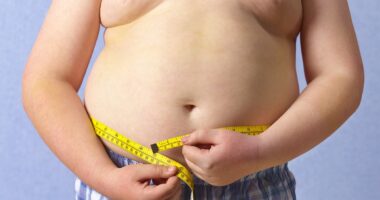Share this @internewscast.com
India Roberts, a seasoned marathon and triathlon athlete, realized something was amiss when she found herself completely drained just from climbing stairs.
At 28, India was in peak physical condition, maintaining a healthy diet and lifestyle. Her day started with fresh fruit, followed by a lunch rich in protein and vegetables. After a busy day at work and a rigorous gym session, she’d enjoy a hearty dinner.
Residing in Sydney, India worked in tech and also taught yoga, confident in her ability to care for her health. Her passion for sports began in school and continued through her university years with athletics.
Yet, as she was gearing up for her third marathon in 2024, her health unexpectedly began to decline.
“I was often fatigued,” India recalls. “I assumed it was just from the intense training.” Despite setting a personal best in the marathon, her exhaustion persisted even after reducing her workout intensity.
“By late 2024 and into early 2025, even simple tasks like walking upstairs felt challenging,” she explains. “I lost the desire to train; everything seemed overwhelmingly difficult.”
And there was another symptom that India had paid little attention to while training: Two months before the race, she had stopped getting her period. And, a year on, it had still not returned.

At the age of 28, India was fit, eating healthily, and at the top of her physical game. But then her periods stopped
In February India decided she could not ignore the problem any longer and went to see her doctor, who ordered a blood test. This revealed alarmingly low levels of female sex hormones, including oestrogen, that regulate the menstrual cycle and are crucial for fertility.
However, India’s doctor told her that she was just tired, and assured her that, with plenty of rest, her period should return in a few weeks.
When this did not happen, India sought out a sports and exercise medicine specialist who, after consulting her blood test results, diagnosed her with a condition she had never heard of before: Relative energy deficiency in sport, or RED-S.
The little-known problem occurs when the body is not getting enough energy to meet the demands of regular physical activity.
RED-S can affect both men and women, and symptoms typically range from unexplained fatigue, irritability, bouts of hunger, persistent injuries and even loss of libido.
Crucially, for women, an irregular or lost period is a common sign. Experts say that, left untreated, this can impact the patient’s fertility, reducing their chances of being able to have a child.
‘It’s often in your late 20s through to early 30s when people are “work hard, play hard” or they think, “I’m going to do a marathon now” – but the fertility clock may be ticking,’ says Dr Catherine Spencer-Smith, a London-based sports and exercise medicine specialist.
‘And as the months go by, your fertility rates decline because you’re simply not having a regular cycle.’

India saw a specialist who diagnosed her with a condition she had never heard of before: Relative energy deficiency in sport, or RED-S
The condition was first observed in Olympic-level athletes, but research shows that it also regularly affects people who exercise recreationally.
In 2023 a survey of nearly 800 UK female athletes – the majority of them participated in personal fitness rather than competitive sports – found that nearly half reported at least two RED-S symptoms.
‘Those at-risk are the ones not taking sufficient time to rest and recover,’ says Renee McGregor, a sports dietician.
‘I find junior doctors and personal trainers really struggle with this because they have demanding jobs with erratic hours and then on top of this they also want to train.
‘Many get up at “silly o’clock” and even if it’s a fairly low key exercise, if done regularly, it can still start to have a negative impact and lead to RED-S.
‘Similarly, you could have someone who has a low exercise load but is highly restrictive with their eating.’
Experts say that, often, RED-S patients don’t consume enough carbohydrates – a nutrient that is an essential source of energy for the body.
Carbohydrates are typically found in bread, rice, pasta and potatoes.
‘You only need to be under-eating, very marginally, literally a slice of bread a day, for your body to go “What’s going on here? Let’s batten down hatches,”‘ says Dr Spencer-Smith.

‘I was exhausted a lot of the time,’ says India. ‘But I thought I was just tired from training’
She explains that, when this happens the body starts to conserve energy and the production of sex hormones like oestrogen and progesterone is suppressed.
Left untreated, RED-S patients can even risk osteoporosis – a serious brittle bone condition.
This is because oestrogen is crucial for bone strength.
‘We see it all the time. It’s really, really common,’ says Dr Spencer-Smith. ‘I would say I see probably about ten people a week, non-professional athletes, who come through my door who have some kind of bone stress injury that is definitely RED-S’.
Experts say that, in order to reduce the risk of RED-S, patients should make sure they are consuming enough calories and getting the right balance of nutrients.
Studies show that women who regularly exercise – more than 150 minutes a week – should consume about 2,500 calories a day.
Of those, around a third should come from carbohydrates, which is equivalent to about ten slices of bread or three-and-a-half cups of rice.
Meanwhile active women should aim to consume around 45g to 72g of protein a day, roughly around one to two chicken breasts or three to five cups of chickpeas.
Experts say that, for most RED-S patients, increasing food intake and lowering physical activity frequency can be enough to beat the condition.
However, for some, more intensive treatment is needed, including hormone replacement therapy (HRT), to boost the lost sex hormones.
‘There are some people who we’ve had to restrict their activity, really pile on the calories and give them some HRT to kick them back into a cycle, which often will work,’ says Dr Spencer-Smith says.
‘But in an ideal world we obviously wouldn’t do HRT.’
Luckily, India did not require hormone treatment. Instead, on the advice of her doctor, she increased the size of her meals and snacks throughout the day, and reduced her exercise considerably.
And, in October this year, her period returned.
India says that the experience has taught her to take better care of her body.
‘This recovery has been so much more than just getting my period back,’ she says. ‘It’s been about rebuilding trust with my body, learning to be patient and letting go of control and this constant need to do more.’











